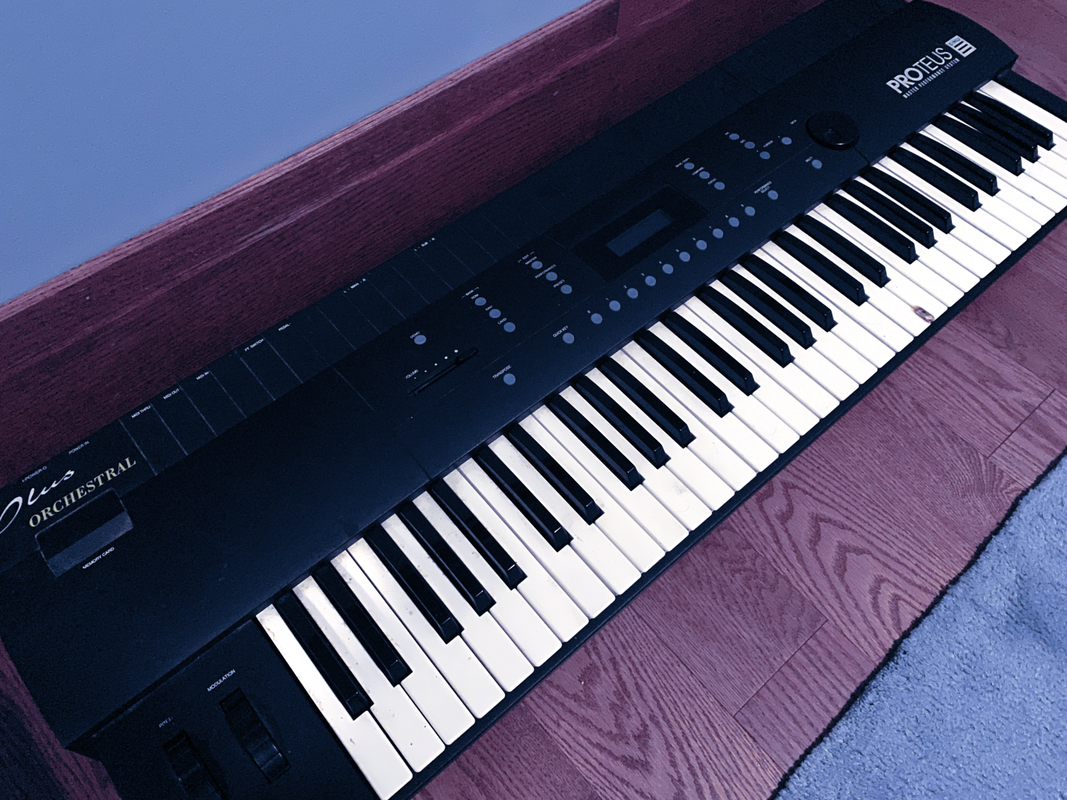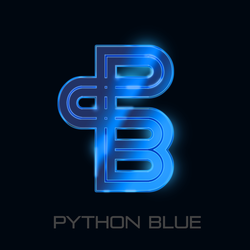It's been a while since I wrote anything relating to synthesizers and sound libraries as well, though it's partially because I've also been taking it easy on buying new equipment, no thanks to the pandemic, among other things, ramping up prices.
Needless to say, I was surprised when I found an early 90s keyboard on Reverb for only $100 before shipping.
Needless to say, I was surprised when I found an early 90s keyboard on Reverb for only $100 before shipping.
Granted, as shown above, two keys do have some sort of cigar burn, and I could smell that much while unboxing. Fortunately, despite the cosmetic flaw, and a loose connection for the power cord, the keyboard seems to work almost perfectly!
Said keyboard's name: the E-mu Proteus MPS Plus Orchestral, based on the famous E-mu Proteus rackmount modules of the early 90s. The early Proteii as a whole consisted of ROM-plers with 4 MB of ROM (8 in the case of the Proteus/2) with decent quality samples of largely acoustic instruments, though one of the limits involved is lack of a traditional filter cutoff. Having toyed around with this keyboard a bit already, I have confirmed that such a statement is only partially correct: the modulation section of patches include a destination referred to as "Tone Control", which is essentially a sort of keytracked filter applied to each sample, normally modulated (aka made darker) for the purpose of lower velocities.
To say this is just a keyboard of such limited ROMpler's (specifically the Proteus/1 plus Orchestral), however, sells itself a tad short: one benefit of the MPS keyboards over the modules was that they also had room for internal effects. One slot is normally reserved for reverb while the other can be a tad more creative (including even distortion and ring modulation, though the latter doesn't have any editable parameters for some reason).
Likely because of said feature, the MPS keyboards also have different presets, and the presets that were recycled from the Proteus/1 and /2 have added chorus and reverb. The patches are also organized a bit differently: 100 patches per bank (500 total when including an optional memory card) instead of the modules' 64 (192 total for standard modules, double for the XR variants).
In terms of the sound, I personally feel it's alright. Extremely dated ROM samples, yes, but what it can do it does pretty well, especially for the early 90s. The "Plus" aspect to the name is because it contains orchestral samples in addition to a pop-oriented soundset, though also noteworthy is that the piano multisample is not what's on the Proteus/1, or at least the DSF samples based on it. Rather, from what I've heard from other music-heads, this particular piano multisample was based off of the Proformance module instead of the Proteus modules. Why the inconsistency is a minor mystery to me, but given how this sounds relative to the Proteus/1, I'm not complaining too much.
I'd share a video or audio demo of how it sounds, but, while I may work on that later, I think it would be more fun to say listen to the soundtrack of the first Myst game: that early 90s adventure game's music (and apparently a small few of its sound effects as well) were all generated from this keyboard model!
Personally, while I'm fully aware that the Proteii as a whole are not for everyone in terms of sound, if you do get tempted to acquire anything other than the Proteus/3 (which was dedicated to ethnic sounds), I say save up the money and space for this over the modules, for the sake of the included effects engine.
UPDATE: finally remembered to attach demos here:
Said keyboard's name: the E-mu Proteus MPS Plus Orchestral, based on the famous E-mu Proteus rackmount modules of the early 90s. The early Proteii as a whole consisted of ROM-plers with 4 MB of ROM (8 in the case of the Proteus/2) with decent quality samples of largely acoustic instruments, though one of the limits involved is lack of a traditional filter cutoff. Having toyed around with this keyboard a bit already, I have confirmed that such a statement is only partially correct: the modulation section of patches include a destination referred to as "Tone Control", which is essentially a sort of keytracked filter applied to each sample, normally modulated (aka made darker) for the purpose of lower velocities.
To say this is just a keyboard of such limited ROMpler's (specifically the Proteus/1 plus Orchestral), however, sells itself a tad short: one benefit of the MPS keyboards over the modules was that they also had room for internal effects. One slot is normally reserved for reverb while the other can be a tad more creative (including even distortion and ring modulation, though the latter doesn't have any editable parameters for some reason).
Likely because of said feature, the MPS keyboards also have different presets, and the presets that were recycled from the Proteus/1 and /2 have added chorus and reverb. The patches are also organized a bit differently: 100 patches per bank (500 total when including an optional memory card) instead of the modules' 64 (192 total for standard modules, double for the XR variants).
In terms of the sound, I personally feel it's alright. Extremely dated ROM samples, yes, but what it can do it does pretty well, especially for the early 90s. The "Plus" aspect to the name is because it contains orchestral samples in addition to a pop-oriented soundset, though also noteworthy is that the piano multisample is not what's on the Proteus/1, or at least the DSF samples based on it. Rather, from what I've heard from other music-heads, this particular piano multisample was based off of the Proformance module instead of the Proteus modules. Why the inconsistency is a minor mystery to me, but given how this sounds relative to the Proteus/1, I'm not complaining too much.
I'd share a video or audio demo of how it sounds, but, while I may work on that later, I think it would be more fun to say listen to the soundtrack of the first Myst game: that early 90s adventure game's music (and apparently a small few of its sound effects as well) were all generated from this keyboard model!
Personally, while I'm fully aware that the Proteii as a whole are not for everyone in terms of sound, if you do get tempted to acquire anything other than the Proteus/3 (which was dedicated to ethnic sounds), I say save up the money and space for this over the modules, for the sake of the included effects engine.
UPDATE: finally remembered to attach demos here:
| | |



 RSS Feed
RSS Feed